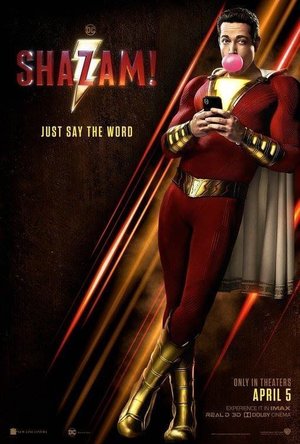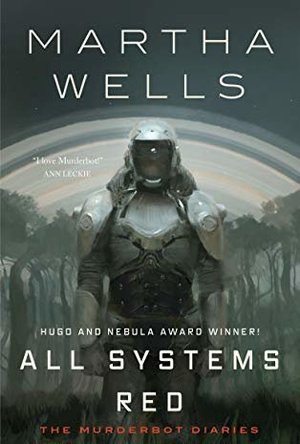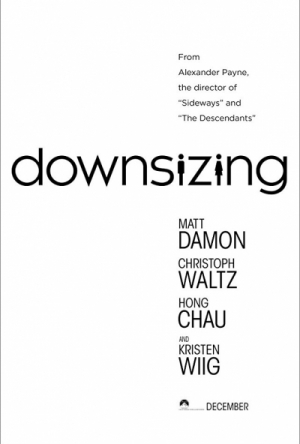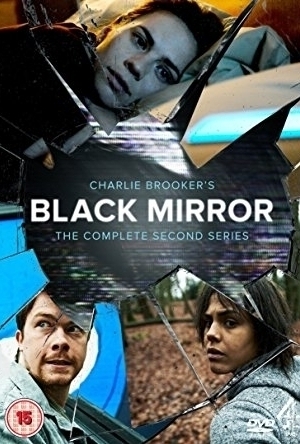Lucy Buglass (45 KP) rated The Disaster Artist (2017) in Movies
Jun 20, 2019
I was lucky enough to see the film during its opening weekend at the Prince Charles Cinema, which actually made my experience even better. Being around a crowd of The Room fans who knew the film like the back of their hand was hilarious, because they recited familiar quotes along with James Franco, and it was clear the entire audience was having a blast from start to finish. I honestly can’t remember the last time I laughed this much at a film. Everyone involved made a real effort to recreate the scenes that we know and love, whilst giving us a glimpse into what life on that film set was really like. It’s possible to forget that you’re watching The Disaster Artist and not The Room at times, because the performances are so spot on.
Once again, James Franco’s ability to take a real life person and bring them to life on a screen shone through. I always refer to his performance as Aron Ralston in 127 Hours as one of his best, but his portrayal of Tommy Wiseau certainly comes a close second. He nails the mannerisms, the accent, and that weird laugh that Wiseau has become well known for. You can tell he has dedicated a lot of time and effort to the project, and it’s paid off. Praise must also be given to the rest of the cast for perfectly emulating the characters. Josh Hutcherson as Denny was amazing; even when he was just sitting there that ridiculous wig was enough to make the audience cry with laughter, and Seth Rogen’s script supervisor character delivers these amazing one liners that show his frustration at Tommy’s ridiculous ideas.
Whilst clearly hilarious, this film is not without its fair share of tragedy, mainly around Dave Franco’s character Greg Sestero. His friendship with Tommy required him to make huge, unimaginable sacrifices both professionally and personally, ultimately causing a rift between the two. Greg is a classic example of a man chasing the allure of fame, and failing miserably. You can’t help but sympathise with him as he tries his best to keep those around him happy whilst trying to attain life changing career goals. The film also shows a darker side to Tommy Wiseau, as he treats the cast and crew around him very badly. He’s so wrapped up in bringing The Room, his “real Hollywood movie”, to life that he neglects the needs of those around him. There are some highly charged emotional moments in this film, which are perfectly balanced with the comedic moments. Without these serious scenes, the film just wouldn’t have been the same.
The Disaster Artist is a must-watch for fans of The Room, and those who want to learn more about the utter chaos that happened on set. It’s funny, intense, emotional and a one of a kind experience from start to finish. Make sure you sit tight until after the credits too, as there’s an extra scene that you don’t want to miss!
https://lucygoestohollywood.com/2017/12/04/ha-ha-ha-what-a-film-mark-a-review-of-the-disaster-artist/
Lucy Buglass (45 KP) rated Ekaj (2015) in Movies
Jun 20, 2019
This gritty, imperfect camerawork and editing matches well with the harsh realities of life for Ekaj and his friend Mecca, both of which are young, gay Puerto Ricans trying to navigate the intimidating streets of New York City. This film doesn’t sugar coat it, as we are greeted with things such as drug abuse, AIDS, violence and sexual assault. We are forced to live this reality alongside Ekaj and Mecca, in all its harrowing honesty. It’s worlds away from my own, yet I felt close to the subject matter throughout. Ekaj and Mecca are complete opposites, with Mecca’s life experience and protective nature conflicting with Ekaj and his naivety. Following these two characters throughout was thoroughly entertaining, despite the difficult environment they both live in.
As the titular character, Jake Mestre really stood out to me. He does a fantastic job at portraying someone young, clueless and confused about their own identity. He experiments with new looks, new scents, and what he feels most comfortable in. He is a character that many can identify with when it comes to sexuality and gender identity, even if they do not share the same life experiences. In addition, the presence of Ekaj’s homophobic and aggressive father is an upsetting reminder of the rejection many individuals face from their own family members. I’m glad Ekaj never avoided these issues or tried to pretend they didn’t exist, instead, they were placed in clear view for the discomfort of the audience. It’s important we shed light on these societal problems, and cinema as a great way to do this.
The intrusive nature of the camera paired with natural, overlapping dialogue is striking, and at times I felt as though I shouldn’t be watching what I was. I felt like a genuine spectator, desperately trying to get a closer look at the lives of these individuals, even when they were talking about some deep and intense topics. The fly-on-the-wall style of filmmaking is what really stood out to me with Ekaj, and something I seriously enjoyed throughout. To me, this is what sets the film apart from others within the genre.
All in all, Ekaj is a well-rounded indie film that gives us a heartfelt and eye opening look at the dark side of New York City, whilst simultaneously creating a compelling and strong relationship between two young men. The way humour and sentimentalities still existed in such an awful world gave me a glimmer of hope, and some light relief throughout. Fundamentally, this is down to great writing and acting, which I’m full of praise for when it comes to this film.
I would certainly recommend Ekaj to a variety of audiences, whether or not you feel you can identify with any of the characters or subject matters. It sheds light on the darker side to human existence, which is important for us all to witness.
https://lucygoestohollywood.com/2018/11/04/ekaj-a-gritty-raw-portrait-of-a-teenage-runaway/
Ryan Hill (152 KP) rated Shazam! (2019) in Movies
Jun 22, 2019
Shazam! distinguishes itself as DC's first true crack at a comedy; also it's lightest and most modest effort yet. There's a really nice commitment to the lofty, somewhat ridiculously mythological source material here. There's little liberty taken with Shazam's campy world of wizards, demons and magic; the attitude towards these elements can best be described as self-aware without being self-conscious. The jokes almost all land and there's charm oozing out of every frame. Loads of heart, tons of humor and a true fidelity to childhood joy make this such a uniquely enjoyable flick; and an impressively confident approach to a hero that soars due to it's big personality and earnest attitude.
Our hero's journey here boils down to a kid learning to care about a world that has never bothered to care about him. Abandoned as a child and shuttled through the foster system; the explanation and depiction of Billy Batson's unenviable situation is irreverent and laced with sarcasm, true to how teens often confront traumas that imply vulnerability. The film allows these kids to be kids; meaning they're impulsive and ill-equipped for the situation they're in; and often crude and frustratingly ignorant to a seemingly obvious truth. The premise lends itself to a close look at responsibility and purpose; basically a feature length look at a lost kid reclaiming his identity and finding a family. The point at which Billy truly becomes a hero with something to fight for is powerful; a simple but big-hearted affirmation of the importance of connection and love, especially to a kid who's never allowed himself to know either.
Superhero stories can impart lessons in a variety of ways. Both on the page and on the screen; there's a wide array of films that all excel in their own specific way; shaping themselves in the image of their hero, and what he/she means to readers around the world. Shazam! distinguishes itself spectacularly as a film about what constitutes a family, and how that family reflects who we are. There's a powerful yearning in Billy for a connection; someone or something to fight for. A desperate desire for love and support; to feel like a part of something in some way. There's a meaningful, deeply human core to that concept; something universal and immediately affecting. Shazam! understands this from the start; setting aside the punchsplosians and skybeams for a moment, to remind us that sometimes a kid looking for his mom can be as compelling than the threat of planetary destruction. So bring on Joker, Birds of Prey, Wonder Woman 1984 and whatever else DC has in it's chaotic, ever-changing slate of planned superhero flicks; they're on a roll right now.
Jordan Binkerd (567 KP) rated All Systems Red (The Murderbot Diaries, #1) in Books
Aug 8, 2019 (Updated Aug 9, 2019)
To put it simply, this is the best book I’ve read in quite a while. The entire thing is narrated by the extremely sarcastic, introverted, and misanthropic Murderbot, which makes for maybe the most engaging narrator since Harry Dresden. Don’t believe me? Read the first several pages on TOR's website. You know that thing with Charles Dickens where everything would be terribly depressing without his tongue-in-cheek style to bring the humor, rendering it impossible to abridge? No? I’m the only one to notice that? Oh well, moving on. This is like that - a dystopian wasteland of a society that is expanding across the cosmos using crappy low-budget equipment that’s liable to stop working on you when you most need it - to the point where it takes multiple incidents before the protagonists conclude that this isn’t business as usual. There’s also the moral ambiguity of the slavery-in-all-but-name of the Constructs that form the backbone of the labor force - sentient, at least without the governor unit, but forced to follow every whim of the humans they’re assigned to, even if those humans get bored and force them into gladiatorial combat or some such. These Constructs are described as androids, but are more accurately clone-based cyborgs fitted out for whatever task they’ll be doomed to for their term of service; part mechanical hardware, part expendable and easily-regrown meat, genderless and sexless unless designated for….that. And Murderbot? Murderbot just wants to be left alone, yet is a surprisingly deep and compelling character with a tragic backstory and motivations that are deceptively noble given its internal dialogue. Even its self-given name deserves a second look by the end of the book. I cannot recommend this book enough. And it’s a short read, clocking in at right about a hundred and fifty pages, technically more of a novella than a full-fledged novel. Now I just have to wait for whoever has the second book checked out from the library to give it back….
CONTENT: Some violence, not too gruesomely described. Some sexual references, including offhand mentions that some of the characters are in relationships that would be far outside the norm today (one character is said to have three romantic partners waiting together at home for them, for example). Murderbot also makes disparaging references to pleasurebots, but nothing explicit. Occasional R-rated profanity, but not too gratuitous.
Kirk Bage (1775 KP) rated Downsizing (2017) in Movies
Mar 3, 2020
In particular, Sideways and The Descendents from the same Director are two of my absolute favourite light comedy satires of the last 20 years, so I am always interested to see what he is up to. He often has an eye for subtlety and relationships that can break the heart with truth. There is some of that on display here too, it has to be said, however, you do wonder if the sci-fi / CGI element of Downsizing got a little bit in the way?
It isn’t quite the film it could have been, and at times does feel messy and rushed. It also doesn’t follow through entirely with its premise, and perhaps that is what disappointed a lot of the audience. The idea of the small leaving the world of the large behind in search of an environmental solution to the world’s problems is compelling as a joke and allegorical devise… But it just isn’t explored to its full potential, and the visual effects that allow us to see this are years behind what they should have been.
Saying that, the personal journey’s of the main characters are relevent, funny, relatable and often unexpected. Matt Damon is totally fine and well cast; Christoph Waltz adds a counter-point humour and point of view that balances the political ethics of the subject very well; and both Kristen Wiig and Udi Keir offer support of deft pathos in minor roles.
The film truly belongs to Hong Chau, however. Without her multi-layered and show-stealing turn as a Vietnamese refugee, who “downsized” to escape tyranny, losing a limb in the process, the film would be much less than it ends up being. For its many faults, her performance lifts it to something worth watching, as long as you can forgive the argument that her character is a too broadly drawn race stereo-type. Honestly, I can’t see the problem, because I think what she does with it makes the movie – but I am aware of the problems with it…
As a political message and environmental allegory, the film as a whole raises some interesting debate, sometimes because of its (ahem) shortcomings. It is neither intelligent enough, nor funny enough to be a “good” film. But it is an entertaining film. If only to see the sequence of legal and medical procedure that leads to the new world of being small!
What would we be prepared to do to find an answer to a dying world, economic failure and personal unhappiness? Would we risk everything to find ourselves and a solution? Or would we carry on regardless? Feeling lost in a world of fear and looming disaster is a subject worth exploring, and I feel Downsizing asks enough questions well enough to be at least seen and argued with. If that is the only purpose it serves then… OK by me.
The bottom line is, I didn’t hate it. To see it at a rating of 5.7 on IMDb is strange and actually very interesting. It is not a bad film. It just doesn’t completely succeed. I think that score says much more about how vitriolic and opinionated people are becoming about environmental issues. Which is good. A missed opportunity perhaps, and therefore it earns a place in the bin marked “admirable failures”. See it for yourself if you haven’t – it has cult status written all over it, in very small writing.
Kirk Bage (1775 KP) rated Black Mirror - Season 2 in TV
Mar 3, 2020
Hayley Atwell, best known as Captain America’s squeeze in the MCU, Carries the emotional weight of this episode in beguiling style. Not for the last time Black Mirror enters the territory of death, grief, loneliness and questions of a tech-aided afterlife. If it were possible to bring a loved one back in physical form, even though we knew it wasn’t really them, would we be tempted to do it? Entirely believable as a concept, considering the amount of data we are storing about ourselves on social media and in other digital ways. Although any kind of clone as good as Domhnall Gleason is a bit far fetched for now. What works here is realising that no matter how good a facsimile is, it is the myriad of tiny details that make a person that we miss the most, even the imperfections. Genuinely moving in its best moments, and a strong start to season 2 in 2013.
White Bear - 7.5
White Bear, the first of the “blind” episodes, where we as viewer are thrown into a situation with no explanation or context, was the first Black Mirror episode I ever watched. I remember being blown away by the dark concept, compelling nature of the minimal narrative, the cunning twist, and the boldness of the statement seemingly being made. So many themes are going on at the same time here: true crime as voyeuristic entertainment; the moral idea of an eye for an eye, brainwashing, and whether torture under any circumstance can be justified, for starters. Looking back, it isn’t the most rounded tale in the canon, or the best acted, but it is certainly very memorable. It also saw the birth of the White Bear symbol, which pops up in other episodes regularly, if paying attention. What is its meaning? The jury is still out!
The Waldo Moment - 6
The political apathy of a nation, and hatred of the personality flaws of our politicians could lead to a figurehead without real policies being elected and revered – it isn’t a very strange idea in 2020 at all. Many younger voters have been incited to demand change, without any idea of what that change should entail. So, in concept, this episode is right on the money. Trouble is it isn’t well written enough to sustain the drama or intrigue in the way the best of the canon do. The shock value is low, and therefore the reaction is “meh, fair enough”. For me, the first real blip in quality control for the series.
White Christmas - 8.5
This was the transition episode that saw Black Mirror make the big money move from Channel 4 to Netflix. Although now bundled into series two, it was a 21 month wait after The Waldo Moment before over 2 million of us settled down to this Christmas gift in 2014. It comes over as an anthology within an anthology, with John Hamm and Rafe Spall telling tales in front of the fire whilst on a “job” together in the cold wilderness of an unknown location. It is laden with ideas of technology back-firing, and is very satisfying in how quickly it moves through the plot points. The chemistry of the two lead men is great; the arrogance of one and the nervousness of the other allowing for some beautiful twists and turns. Essentially, the whole thing is either a re-working of ideas already used, or a precursor to future ideas that will be more fleshed out. Not that it really matters. This is the highest rated individual episode on IMDb, and the reason for that has to be its accessibility. The balance between being creeped out and entertained is just about perfect.

GoTalk Now
Education and Medical
App
Attainment has been making augmentative and alternative communication (AAC) tools for 25 years. Our...

MSC1: Be Confident in Who You Are
Book and Education
App
Now for iPhone and iPad! • “As you prepare for back to school, don't forget the anxiety...[this...

Case Files Anesthesiology, 1st Edition
Medical and Education
App
“The book targets medical students, but even junior anesthesia trainees would find it very...
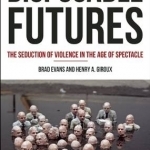
Disposable Futures: The Seduction of Violence in the Age of Spectacle
Brad Evans and Henry A. Giroux
Book
"This is a must-read book for anyone ready to transcend fear and imagine a new reality."--Tikkun...


